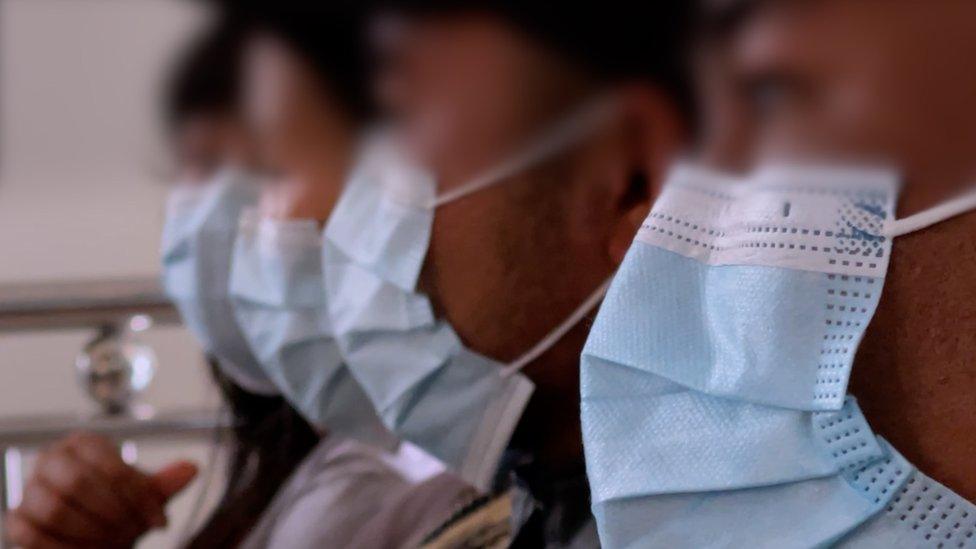Myanmar citizens flee to India to escape violence
- Published
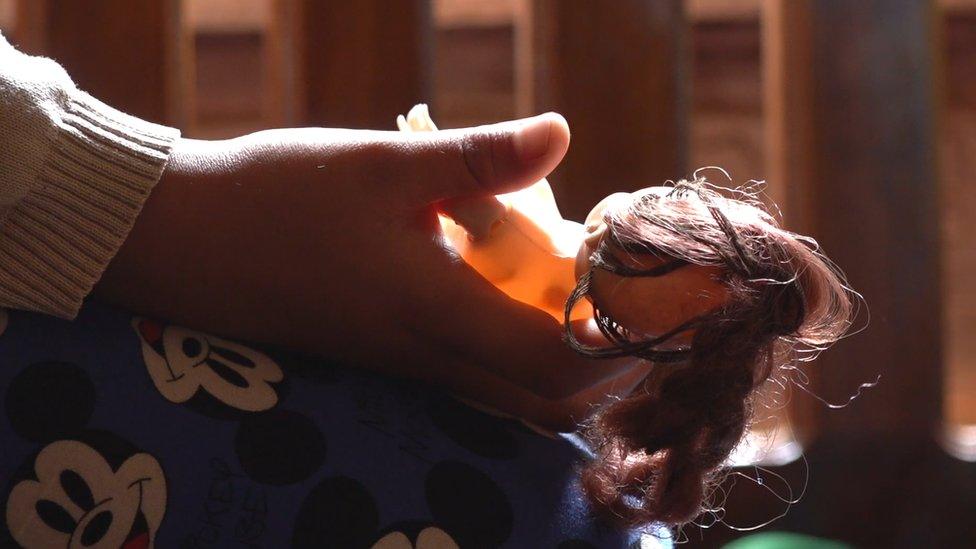
This young girl snuck across the border into India with her mother
Myanmar nationals have been fleeing the country amid violence against civilians in the aftermath of a military coup. Many who live close to the border are seeking refuge in India, reports BBC Hindi's Raghvendra Rao.
It was on her third attempt that Makhai finally made it to India. She used a dirt track through the forest to cross. Others have come via an underground storm drain that connects villages on both sides of the border.
Unlike the previous two attempts, this time Indian security forces didn't stop her.
The 42-year-old, whose name has been changed to protect her identity, fled her home in Myanmar, in the border district of Tamu, earlier this month, along with her sisters and her daughter. They crossed into the north-eastern Indian state of Manipur. It was the only thing they could do to save themselves, Makhai said.
"I had a chance to escape now," she said. "If I waited longer, another chance may not have come my way."
Myanmar, also known as Burma, is in the grip of violence. In February, the country's military overthrew the democratically elected government and detained leader Aung San Suu Kyi. In the weeks since, it has crushed protests against the coup.
Rights groups say the military has killed more than 600 people, including 43 children. Makhai says soldiers have been breaking into houses and raping and killing civilians.
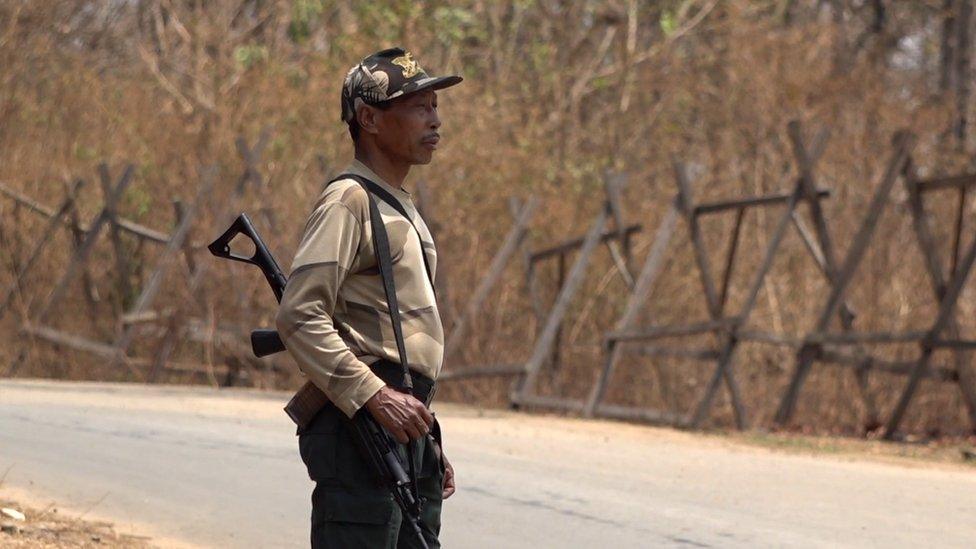
The border between India and Myanmar has been sealed during the pandemic
Witnesses have recounted stories of people being killed in the streets and even in their homes - including a six-year-old who was allegedly shot dead during a home raid as she ran to her father.
Army spokesman Brig Gen Zaw Min Tun said in a recent interview, external that the army would never have shot a child inside their home - and if it did happen, they would investigate the incident.
But reports of such atrocities by the security forces are widespread and have sparked an international outcry.
"Ever since the violence began, we are scared to live in our homes," Makhai said. "We have spent so many nights hiding in the forest."
The Manipur government recently told officials in border districts to "politely turn away" refugees from Myanmar - and then retracted the order after a public backlash. In a second order, the state government said it was taking "all humanitarian steps", including treating injured refugees from Myanmar.
But unauthorised immigration is a politically charged issue in India, especially now as regional elections are under way in West Bengal and Assam - two states that have historically seen a huge influx of refugees.
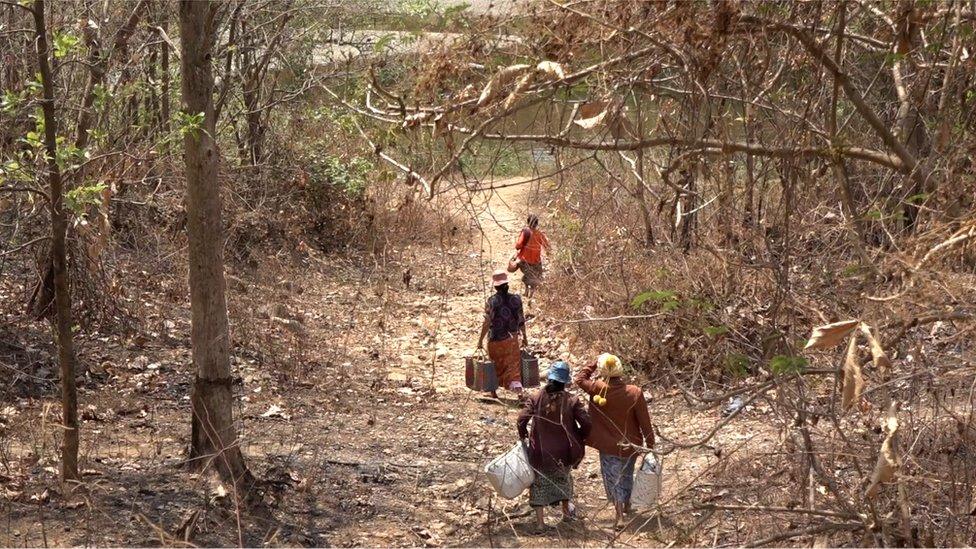
People use dirt tracks and forest cover to cross the border
Two other women who crossed into India along with Makhai told the BBC they would consider going back home only if the situation improved. Their husbands and other men from the family are still in Myanmar.
"The men can fight if needed. For us women, it's difficult to escape if the military suddenly comes knocking," said Winyi, whose name has also been changed. She fled from Tamu with her teenaged daughter.
Until they feel safe to return home, they are relying on their neighbours in Manipur's Moreh district. Located along India's border with Myanmar, Moreh finds itself in the thick of action as all official routes between the two countries are sealed.
For years, India and Myanmar have had a Free Movement Regime in place which allowed local people on each side to travel up to 16km (10 miles) on the other side and remain there for a maximum of 14 days. The arrangement was suspended in March 2020 to stem the spread of the coronavirus. People on both sides hoped that the border would reopen this year, but February's coup dashed their hopes.
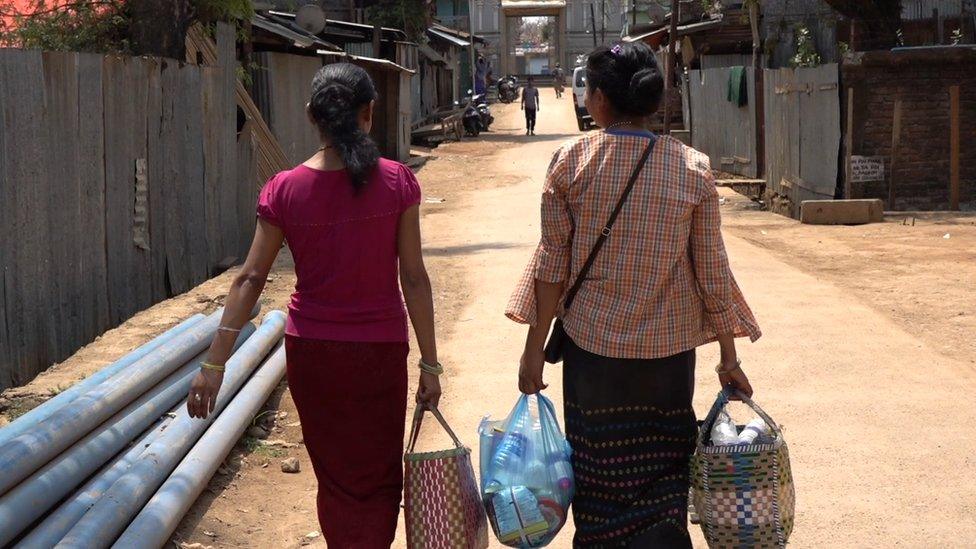
Women from Tamu enter Moreh every day to sell milk
That hasn't prevented many Myanmar nationals from risking an unauthorised journey across what is still a porous border.
"It's difficult to come to India. Often, Indian security forces stop us but we manage to sneak in," said a trader who comes to Moreh every day to supply milk to some 20 households. "Everything is closed back home - there is firing and exploding bombs."
The anti-coup protests in Myanmar have led to large numbers of the armed forces being moved to other areas, leaving the border less protected. Indian troops are not heavily deployed along this border, much to the relief of those who make the daily journey.
After selling their wares, these Myanmar nationals rush back to their side of the border using dirt tracks and bushes. Some believe security forces on both sides turn a blind eye to this movement.
Myanmar coup: How did we get here?
Around 100km (62 miles) from Moreh, in Manipur's capital, Imphal, two young Myanmar nationals were recovering in a government hospital from bullet injuries they said they sustained when protesters and armed forces clashed on the night of 25 March.
"Myanmar soldiers were trying to loot a jewellery story in Tamu. When local residents objected and protested, they opened fire. I got shot," said one of the injured men.
"Even earlier, the police used to come to deal with protests, but this sort of violence is unprecedented," said the other. "The situation started deteriorating when the military started firing on people."
The men were taken to hospital from Tamu to Moreh on the night of the clash. But unlike the women who fled their homes in Myanmar, the men want to return to their families as soon as possible.
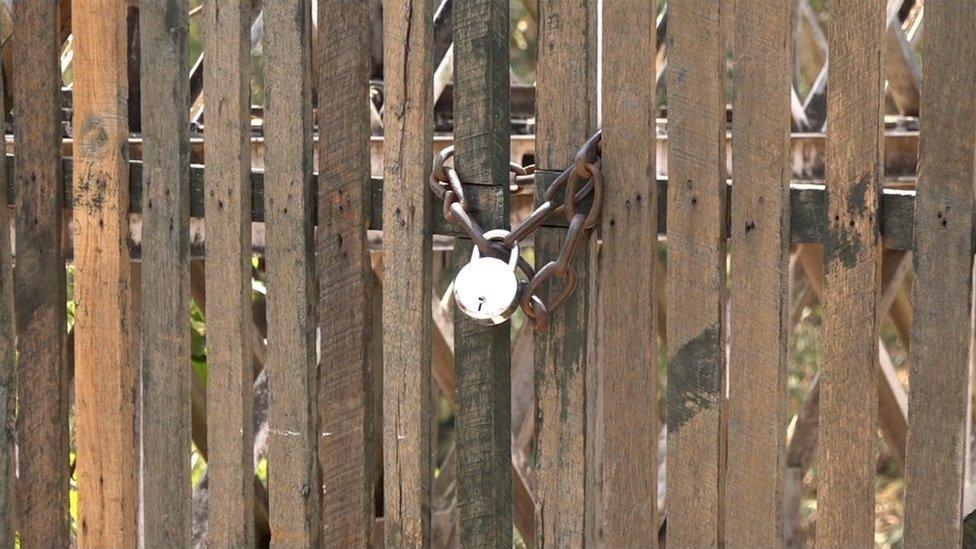
A "friendship bridge", currently closed, allowed people easy cross-border movement
Members of the local Kuki Students' Organisation have been taking turns to tend to the two men and bring them home-cooked food. "Since the health centre in Moreh was not equipped to deal with their injuries, they were brought to Imphal," said Janggoulen Khongsai, vice-president of the organisation.
The Kukis are a hill tribe living in the border regions of India, Bangladesh and Myanmar, enabling close cross-border relations among people who live across the region. This explains why the people of Moreh are sympathetic to the refugees despite officials orders to the contrary.
"We will host them on humanitarian grounds," said Philip Khongsai of the Moreh Youth Club, whose members have been providing food and water to people who got stuck on the border before being eventually turned back. "Let the government do its job, we will do ours."
The influx of refugees from Myanmar is expected to grow. And many in Moreh feel that India needs to stand up and do more to help people on the other side in this difficult time.
As for those fleeing Myanmar, each day brings with it the fear that they may be sent back.

Myanmar in profile
Myanmar, also known as Burma, became independent from Britain in 1948. For much of its modern history it has been under military rule
Restrictions began loosening from 2010 onwards, leading to free elections in 2015 and the installation of a government led by veteran opposition leader Aung San Suu Kyi the following year
In 2017, Myanmar's army responded to attacks on police by Rohingya militants with a deadly crackdown, driving more than half a million Rohingya Muslims across the border into Bangladesh in what the UN later called a "textbook example of ethnic cleansing"


Related topics
- Published25 July 2022
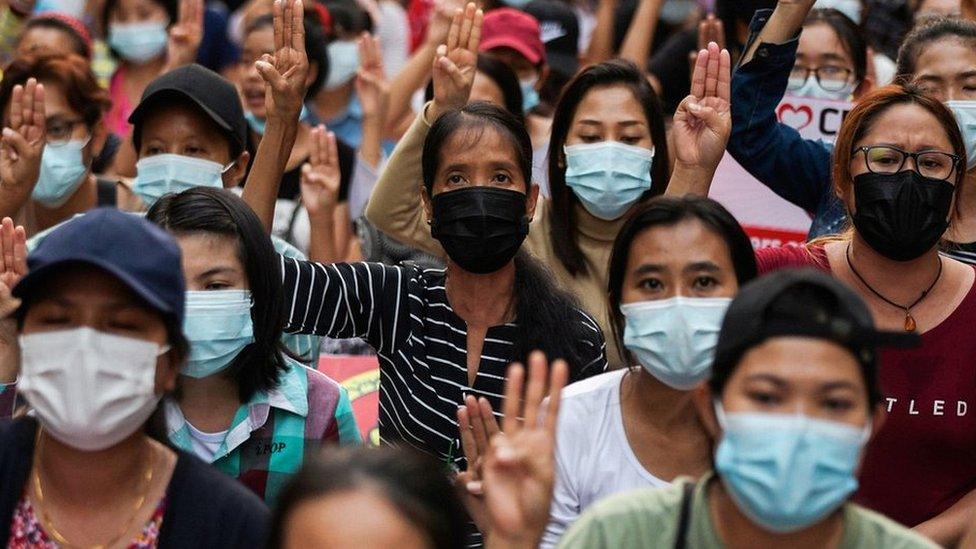
- Published21 March 2021
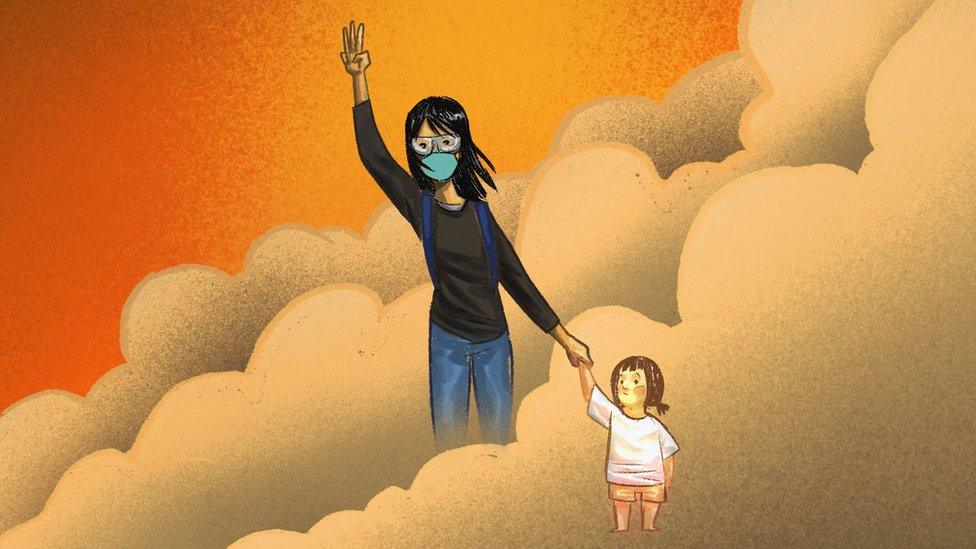
- Published10 March 2021
